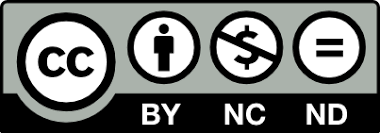BREAKING GENDER AND GAY STEREOTYPES IN GEORGIAN SOCIETY
On the example of the Georgian gay discourse
Keywords:
sociolinguistics, gay community, stereotypesAbstract
Gender has always been a popular field of investigation in the 21st century. It has been studied from different perspectives and points of view. A number of works in language and sexuality have revealed diverse linguistic features, deviating from traditional linguistic expectations both at lexical(e.g. Rodgers 1972) and discourse levels (e.g. Leap 1996). This paper discusses several characteristics of speech discourse of Georgian gay males based on the experiment designed by the author. While answering the questions of an open-ended questionnaire, focus-groups of Georgian gay men discussed neutral topics as well as issues connected with the stereotypical perception of gender roles in society. Georgia is a traditional, conservative, Orthodox country. These factors play a great role in the formation of stereotypes in society and heteronormative stereotypes associated with gender roles are highly popular. Sexual minorities represent vulnerable groups in Georgia, [ჯალაღანია; 2016]. Accordingly, there is little space left for them to reveal their speech characteristics and show their attitudes towards certain issues. This research has revealed speech patterns and linguistic strategies utilized by Georgian gay males which confront heteronormative stereotypes widely spread throughout the country. During the research, members of the gay community expressed themselves through the strategies employed in their community but considered uncommon in the wider society, e.g. using relative pronouns indicated the opposite gender as well as metaphors creating a certain discrepancy in the discourse from the stereotypical heteronormative perceptions.
Full Text (PDF)
References
Bucholtz, Mary. Language and Gender Studies. 2003. Author(s): The Handbook of Language and Gender EDITED BY Janet Holmes and Miriam Meyerhoff . p43- 68.
Bucholtz, Mary (2004) [1975]. "Editor's introduction". In Lakoff, Robin (author); Bucholtz, Mary (eds.). Language and woman's place: text and commentaries. New York: Oxford University Press. pp. 3–14. ISBN 9780195167573.
Cardwell, Mike (1999). Dictionary of psychology. Chicago Fitzroy Dearborn. ISBN 978-1579580643
Carli, Linda L. (November 1990). "Gender, language, and influence". Journal of Personality and Social Psychology. 59 (5): 941–951. doi:10.1037/0022-3514.59.5.941
"Chrysler TV ad criticized for using gay stereotypes". The Advocate. 2006-04-07. Archived from the original on 2006-04-23. Retrieved 2007-04-07.
Coates, Jennifer (2016). Women, men and language: a sociolinguistic account of gender differences in language (3rd ed.). Milton Park, Abingdon, Oxon New York, NY: Routledge. ISBN 9781317292531
Cox, William T. L.; Abramson, Lyn Y.; Devine, Patricia G.; Hollon, Steven D. (2012). "Stereotypes, Prejudice, and Depression: The Integrated Perspective" Perspectives on Psychological Science. 7 (5): 427–449. doi:10.1177/1745691612455204. PMID 26168502.
Harris J, White V (2018). A Dictionary of Social Work and Social Care. Oxford University Press. p. 335. ISBN 978-0192516862. Retrieved August 19, 2018.
Henry George Liddell, Robert Scott, A Greek-English Lexicon, on Perseus Digital Library
Jussim, Lee; Crawford, Jarret T.; Rubinstein, Rachel S. (2015). "Stereotype (In) Accuracy in Perceptions of Groups and Individuals". Current Directions in Psychological Science. 24(6): 490497. doi:10.1177/0963721415605257
Judd, Charles M.; Park, Bernadette (1993). "Definition and assessment of accuracy in social stereotypes". Psychological Review. 100 (1): 109–128. doi:10.1037/0033-295X.100.1.109.
Lakoff, Robin (2004) [1975]. Language and woman's place: text and commentaries. New York: Oxford University Press. ISBN 9780195167573.
McLeod, Saul. "Stereotypes". Simply Psychology. Archived from the original on 11 February 2011. Retrieved 12 March 2018.
McGarty, Craig; Yzerbyt, Vincent Y.; Spears, Russel (2002). "Social, cultural and cognitive factors in stereotype formation" (PDF). Stereotypes as explanations: The formation of meaningful beliefs about social groups. Cambridge: Cambridge University Press. pp. 1–15. ISBN 978-0-521-80047-1.
McCrady, Richard; Jean Mccrady (August 1976). "Effect of direct exposure to foreign target groups on descriptive stereotypes held by American students". Social Behavior and Personality. 4 (2):233. doi:10.2224/sbp.1976.4.2.233
Munson et al., 2006, p. 216.. The acoustic and perceptual bases of judgments of women and men’s sexual orientation from read speech.
Operario, Don; Fiske, Susan T. (2003). "Stereotypes: Content, Structures, Processes, and Context". In Brown, Rupert; Gaertner, Samuel L (eds.). Blackwell Handbook of Social Psychology: Intergroup Processes. Malden, MA: Blackwell. pp. 22–44. ISBN 978-1-4051-0654-2.
Podesva, Robert J., Sarah J. Roberts, and Kathryn Campbell-Kibler. "Sharing Resources and Indexing Meanings in the Production of Gay Styles." Language and Sexuality: Contesting Meaning in Theory and Practice (2001): 175–89.
Richardson, Colin (17 January 2005). "Colin Richardson: Polari, the gay slang, is being revived". The Guardian.
Sinclair, Stacey; Huntsinger, Jeff (2006). "The Interpersonal Basis of Self-Stereotyping". In Levin, Shana; Van Laar, Colette (eds.). Stigma and Group Inequality: Social Psychological Perspectives. Claremont Symposium on Applied Social Psychology. Mahwah, NJ: Lawrence Erlbaum Associates. p. 239. ISBN 978-0-8058-4415-3.
Stangor, Charles (ed.) (2000). Stereotypes and Prejudice: Essential Readings. Philadelphia, Pa.: Psychology Press. ISBN 978-0-86377-588-8
Tannen, Deborah (2006). "Language and culture". In Fasold, Ralph W.; Connor-Linton, Jeff (eds.). An introduction to language and linguistics. Cambridge, UK New York: Cambridge University Press. pp. 343–372. ISBN 9780521612357
Tajfel, Henri (1981). "Social stereotypes and social groups". In Turner, John C.; Giles.
Wolfram, Walt; Schilling-Estes, Natalie, eds. (2006). American English: dialects and variation (2nd ed.). Malden, Massachusetts: Blackwell Pub. ISBN 9781405112666.
ლიკა ჯალაღანია; რედაქტორი: თამთა მიქელაძე; 2016 წელი. “ლგბტი პირთა უფლებრივი მდგომარეობა საქართველოში”; ადამიანის უფლებების სწავლებისა და მონიტორინგის ცენტრი (EMC), 2016.












